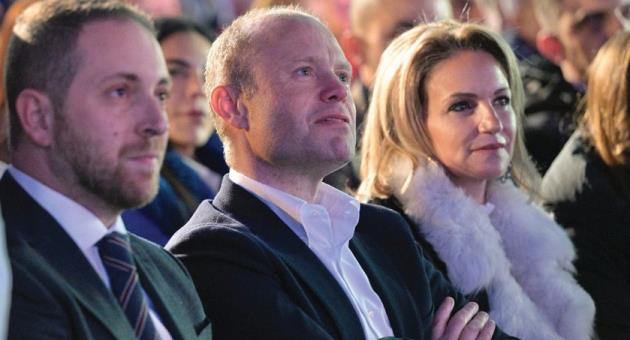
That fateful night when Ali Sadr Hashemi Nejad was spotted though not recognised by a film crew sneaking out of the back door of his bank, there was a moment of national crisis for the country. At least it felt like there should have been.
Joseph Muscat had been long the suspect of wrongdoing for many people. It had started soon after he came to office with his schoolyard bully’s manner of defending the lowering of his own standards when his role in the Café Premier debacle was exposed. Things had come to a head when Joseph Muscat refused to fire Keith Schembri and Konrad Mizzi after the Panama Papers scandal. He made himself the obvious candidate to answer the question of who owned the third Panama company.
When the allegation was made that he did and that evidence of that was held by Pilatus Bank, the revelation seemed plausible. Perhaps even to Joseph Muscat who rushed to put a lid on the scandal by using the most powerful distraction available to him: he called a general election.
Now this detail is a matter of historical dispute. There are many indications that the decision to set the election for June 2017 was taken well before Daphne Caruana Galizia published the Pilatus Bank stories. Ironically for the purposes of this argument I am less interested in the truth of the matter than I am in the way Joseph Muscat presented it. His lies, as it were, matter more to explain his motivations than any understanding of the facts.
Joseph Muscat wanted the public to understand that he had called the June 2017 elections to address the instability, as he called it, caused by Daphne’s reporting. He wanted to suffocate that air of crisis because that endangered his position, political and personal.
For people saying that Robert Abela has been imitating Donald Trump in the last few weeks, this is a reminder to acknowledge that before Donald Trump there was Joseph Muscat. There was also the burning of the Reichstag. There was the fire of Rome. People of power do that. Certainly, the effective ones do. You need a strategic mind to be politically successfully. But you also need to be an opportunist who can pivot around events and use them to your advantage.
Joseph Muscat wanted to bury the suspicion that he had used an offshore vehicle to launder bribes because that risked becoming politically inconvenient to him. So, he used a general election (which was quite likely planned anyway) to provide the public with an opportunity to rescue him. All he needed to do after that was convince them that rescuing him was really their idea. They needed Joseph.
The discourse of these European and local elections echoes that. Labour Party candidates are falling over themselves to appear more certain than their rivals of Muscat’s innocence. Robert Abela has explicitly presented the ballot as the public’s opportunity to acquit Muscat. Well, actually, he says it’s an opportunity for the public “to respond to the establishment”. Which is intended to be understood as an acquittal of Muscat.
These things are predictable. And while Donald Trump lowers the standards of decency in all countries that used to call themselves liberal democracies, these things have become normal.
How many times can we afford to do this before it becomes a universally accepted principle that the way for criminals to avoid justice is spending some of the proceeds of their crime to win elections? When will Pablo Escobar’s flamboyant attempt at using politics to his advantage in 1980s Colombia become systemic in our countries?
How long before it becomes impossible for any well-meaning and public-spirited aspiring politician to win office because she’s outbid by the expenditure of corrupt speculators or drug lords or coercive monopolists?
In the 1980s winning municipal elections was the quickest way for Italian mafiosi to win public contracts and secure corrupt deals. Mafiosi would become mayors and award their families lucrative land use change permits, or procurement deals. At first presidents would dissolve municipalities based on public interest, until the Italian drew up a law that required the dissolution of local councils if it could be shown that the mafia had infiltrated them.
The thinking there was not that local democracy was a bad thing, but that it wasn’t enough justification for criminals to be in political parties that they got enough people to vote for them. Because mafiosi were (and remain good) at winning local elections in Italy. They knew better than to behave like greedy brutes when in power. They spent public money on retaining popular support while they siphoned off their own profits unlawfully.
If you’re received a cheque paid out to you from tax money for no reason you can fathom this will be familiar. Also, if your prime minister has recently told you to call him on his personal phone if you were unable to get something out of the government through the normal schemes and application processes. Bob’ll fix it, he told you. C’arrangiamo. It’s all very familiar. It’s all very convenient while they use the political power you reward them with to dodge consequences of their far more serious crimes.
But who can dissolve the government of a country? And why worry about Malta when a convicted felon could be living in the White House soon?
One day, and it won’t be too far any longer, we’ll have lost democracy altogether. Like lambs to the slaughter, we’ll be led to the ballot box and reward our thieves by thanking them for letting us lick the loot.